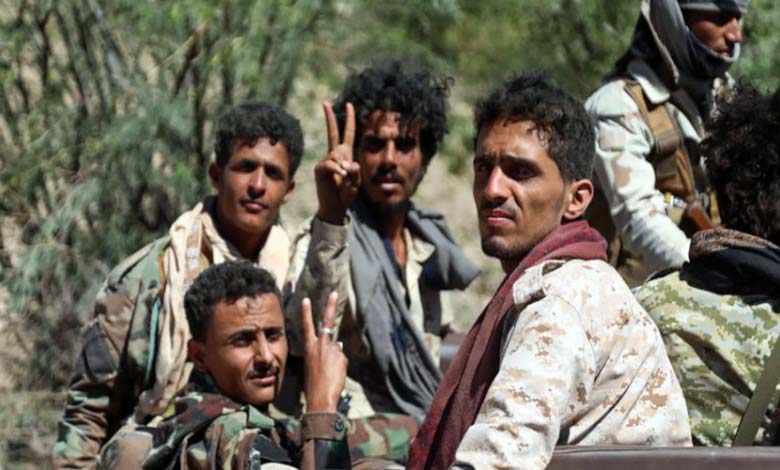Clashing Interests Outweigh Cooperation… Why Did the Houthis Kill a Prominent Muslim Brotherhood Leader?

In an incident highlighting the underlying contradictions in the unofficial relationship between Yemen’s Islah Party (the political wing of the Muslim Brotherhood) and the Houthi movement, Sheikh Saleh Hantous, a prominent figure within the party, was killed yesterday in armed clashes after Houthi fighters stormed his home in the Raymah governorate, western Yemen.
-
Is Marib Becoming a Safe Haven for Houthi Propaganda? Muslim Brotherhood-Affiliated Officer Sparks Outrage with Shocking Tweet
-
The Muslim Brotherhood Crush the Last Line of Defense Against the Houthis… and Open a New Front Against Marib’s Tribes
The attack, which resulted in the death of the elderly sheikh and the injury of his wife, occurred despite what observers describe as “invisible lines of communication” between the two parties. These connections have manifested over recent years in periods of field calm and tacit exchanges of interest, particularly in northern regions under Houthi control, according to Al-Araby 21.
Local sources confirmed that Sheikh Hantous resisted a sudden arrest attempt by the Houthis, which escalated into an armed confrontation. His house was struck by RPG shells, killing him instantly. Residents described the event as “shocking” given the symbolic and religious stature of the sheikh.
-
Abuses, Extortion, and Theft… Scandals Rock Brotherhood Strongholds in Yemen
-
People and Stone… The Muslim Brotherhood Spreads Corruption in Taiz
Despite the deadly clash, analysts point out that relations between the Houthis and the Islah Party—while officially hostile—have at times involved indirect understandings, including the neutralization of certain fronts or the administrative division of influence in specific areas.
Some analysts believe the incident may be tied to an internal power struggle or factional score-settling within the Islah Party, amid conflicting views on the party’s approach toward the Houthis and recurring accusations of covert cooperation.
-
Clashes, Killings, and Security Chaos… The Muslim Brotherhood Fuels Unrest in Taiz
-
New Contacts Between the Muslim Brotherhood and the Houthis… Details
Yemeni Minister of Information, Culture, and Tourism, Moammar al-Eryani, condemned what he called the “barbaric crime” committed by the Houthis against Sheikh Hantous.
In a statement carried by the official Saba news agency, al-Eryani stated that the crime reflected the militia’s continued policy of targeting civilians and suppressing moderate religious voices in an attempt to intimidate society and silence dissenting views.
-
A Muslim Brotherhood military commander threatens to hand over military positions to the Houthis
-
American Airstrikes on Houthis Expose the Double Standard of Yemen’s Muslim Brotherhood
He called on the international community and human rights organizations to strongly condemn the killing and take a clear stance against the systematic violations committed by the Houthis in the territories they control.
Meanwhile, the deputy head of the Islah Party’s media office, Adnan al-Odeini, said that “the sheikh was not a politician, but he embodied the republican spirit and countered sectarianism with knowledge.” He added that targeting him revealed the militia’s intent to break the dignity of free men and enforce a singular voice on society.
-
Houthis Call on the Muslim Brotherhood Regarding Syria
-
Military Commander Affiliated with the Muslim Brotherhood Seizes Government-Owned Land
It’s worth noting that the Islah Party, the political arm of the Muslim Brotherhood in Yemen, has maintained an inconsistent posture toward the Houthis—swinging between confrontation and situational alliances. This makes every military escalation between the two sides subject to questions regarding its true motives and implications.












